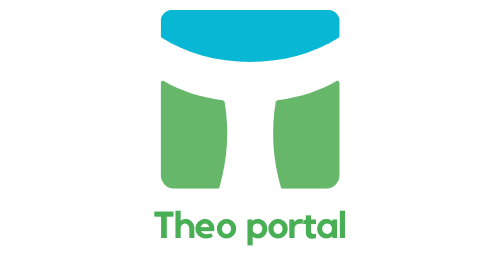Can Blockchain Enable More Transparent and Secure Food Traceability Systems?

The modern food industry is an intricate lattice of supply chains. From farm to kitchen, products can pass through countless hands, each link in the chain adding layers of complexity. As consumers, you have every right to know exactly where your food originates, how it’s been handled, and what it contains. This is where traceability emerges as an essential tool. However, current systems have limitations, and that’s where blockchain technology comes into play. It offers potential for great leaps in transparency, safety, and quality in the food industry. But how does blockchain work in this context, and can it truly revolutionize the food traceability system?
Explaining Blockchain Technology
Blockchain technology, often associated with cryptocurrencies, is a sophisticated system that can store vast amounts of data in a secure and decentralized manner. But what exactly does this mean? Fundamentally, a blockchain is a chain of blocks where each block contains data. This data is kept secure through advanced cryptographic techniques. A blockchain network is decentralized as all participants share the same copy of the entire blockchain, eliminating any single point of failure.
A découvrir également : What Are the Latest Innovations in Non-Invasive Diabetes Monitoring Devices?
Blockchain technology can be applied to any industry that requires immutable, transparent data. It can be a key player in the democratization of access to data, allowing all stakeholders equal access to the same information. When applied to food traceability, this technology can provide unprecedented transparency and security in the supply chain, ensuring that all parties have access to the same data about the origin, handling, and quality of food products.
Blockchain and Food Safety
In the world of food production and supply, safety is of utmost importance. The consequences of unsafe or contaminated food products can be severe, from widespread outbreaks of food-borne illness to extensive product recalls and loss of consumer trust. Current traceability systems, while often robust, can be time-consuming and lack the transparency required for rapid response to food safety crises.
Sujet a lire : What’s the Role of 3D Holography in Medical Imaging and Diagnosis?
Here’s where blockchain technology can play a pivotal role. By providing a near-instantaneous, transparent view of the entire supply chain, it allows stakeholders to identify and address safety issues much more swiftly. Any irregularities can be detected in real time, and since the data is immutable, it cannot be tampered with, ensuring a high level of trust and security.
Enhancing Transparency with Blockchain
Transparency in the food industry not only impacts consumer confidence, but also drives competition and innovation. Current traceability systems are often opaque, and the data they provide can be limited. This is where blockchain can truly shine.
By using blockchain technology, all data related to a food product can be stored in an open, decentralized system. This includes details about the product’s origin, the methods used in its production, its journey through the supply chain, and even its carbon footprint. This information can be made accessible to all stakeholders, including the end consumer. Offering this level of transparency empowers consumers to make more informed decisions about the food they purchase and consume.
Quality Assurance and Blockchain
Quality assurance is another critical aspect of the food industry. The integrity of food products is directly impacted by their handling and storage throughout the supply chain. Current traceability systems can struggle with providing real-time data, which can make it challenging to monitor and ensure product quality.
The use of blockchain technology in food traceability systems can significantly enhance quality assurance. Since all transaction data is recorded in real time and is immutable, it provides an accurate, trustworthy history of a product’s journey. This means that if any quality issues arise, the point of origin can be quickly identified and addressed, preventing further distribution of substandard products.
The Future of Blockchain in Food Traceability Systems
While the benefits of implementing blockchain in food traceability systems are substantial, it is important to note that this technology is not a magic bullet. The successful integration of blockchain into these systems will require a significant shift in industry paradigms and the overcoming of technical, regulatory, and logistical challenges.
However, with continued investment and research, blockchain-based food traceability systems could become the norm. As we move towards a future where data integrity and transparency become even more important, the potential of blockchain technology to revolutionize the food industry is undeniable.
As consumers, you need to not only keep an eye on these developments but also demand that food businesses adopt such technologies for safer, more transparent food products. After all, blockchain’s potential extends far beyond the realms of finance and technology. Its ability to ensure transparency and safety in the food industry is a testament to the transformative power of this technology.
Comprehensive Application of Blockchain in Food Chain Management
The transition from traditional to blockchain-based food traceability systems consists of far more than just switching technologies. It demands a profound change in the way we manage the food supply chain. This includes every aspect, from the way data is collected, stored, and shared, to the manner in which stakeholders interact with and react to this information.
Currently, data in supply chains is often stored in siloed systems. This makes it difficult to get a holistic view of the journey of a food product. By adopting blockchain technology, data can be stored in a decentralized manner, making it accessible to all relevant parties. This, in turn, facilitates more effective and timely decision-making, which can significantly enhance the efficiency of food chain management.
Additionally, the use of smart contracts – self-executing contracts with the terms of an agreement directly written into code – can further streamline operations. For instance, smart contracts can automatically execute actions such as payments or issue alerts when certain conditions are met, like a change in temperature during transport that could affect food quality.
Moreover, blockchain can enable better collaboration among stakeholders in the supply chain. Given that all parties have access to the same, immutable data, there is less room for disputes. This can foster a more cooperative, rather than competitive, approach to managing the supply chain.
Overcoming Challenges for Blockchain Adoption in the Agri-Food Sector
While blockchain holds immense potential for revolutionizing food traceability systems, it’s important to acknowledge the obstacles that must be overcome for its widespread adoption in the agri-food sector.
One of the major barriers is technological. The food industry is typically characterized by low margins and high volumes, which requires highly efficient systems. Implementing a blockchain-based system could be perceived as a costly and complex process, particularly for smaller businesses with limited resources.
Moreover, regulatory challenges exist. There are currently no established standards for blockchain implementation in the food industry. Creating these standards and ensuring they are adhered to could be a significant hurdle.
Furthermore, the successful implementation of blockchain in food traceability systems requires a high level of digital literacy among all stakeholders. This includes farmers, transporters, retailers, and even consumers. Providing the necessary education and training is a substantial task, but one that is critical for the successful adoption of blockchain in the agri-food sector.
Concluding Remarks
The potential of blockchain to transform food traceability systems is remarkable. By offering an unprecedented level of transparency and security, it can enhance food safety, boost consumer confidence, and promote innovation and efficiency in the food supply chain.
However, the path to widespread adoption of blockchain in the food industry is laden with challenges. Technological, regulatory, and logistical obstacles must be overcome. It also necessitates a shift in the mindset of all stakeholders, from farmers to consumers, towards a more data-driven approach in the food supply chain.
Yet, as we continue to grapple with food safety issues, and as consumer demand for transparency in the food supply grows, the need for a solution like blockchain becomes increasingly apparent. It’s time to delve deeper into the application of blockchain technology in food chain management and invest in research and development to make this a reality.
As we move forward, we must remember that blockchain is more than just a technology. It’s a tool that could reshape our food systems, making them more transparent, safe, and efficient. And that’s a future worth striving for.
